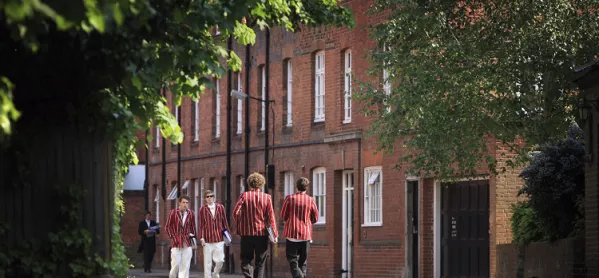Private schools having charitable status can be a disadvantage as it means they do not try to “maximise their profits”, the head of the Independent School Council said today.
Barnaby Lenon, chair of the ISC, said that while there were “obvious” advantages to being a charity, one disadvantage that stood out was the lack of pressure to improve profit margins.
“Many of our schools are charities, and while there are many advantages, there is also one disadvantage and that is they don’t have the same compulsion to maximise their profits as a normal private company would do,” Mr Lenon said at the education technology conference Bett.
“They don’t have the same drive to cut costs as a normal company would do. So being a charity could be a disadvantage.”
The charitable status enjoyed by the fee-paying sector is a source of major controversy, as it means the schools receive tax breaks, which are estimated to be worth £700 million over the next four years.
Private schools were forced to defend the system earlier this month after Labour tabled a raft of amendments to the Charities (Protection and Social Investment) Bill that would have forced fee-paying schools to “engage with their local communities and state schools to share resources and facilities”.
The move came after the party’s shadow education secretary Lucy Powell said in September that Labour would look at plans to strip private schools of their charitable status if they failed to share their resources with their counterparts in the state sector.
Speaking to TES afterwards, Mr Lenon, who was headmaster of Harrow School for 12 years, said: “On balance, you want to be a charity because there are financial advantages. This isn’t a question private schools ask themselves because they have been a charity for decades or even hundreds of years. We believe offering education is charitable and we’re pleased to be called charities.”
Want to keep up with the latest education news and opinion? Follow TES on Twitter and like TES on Facebook




